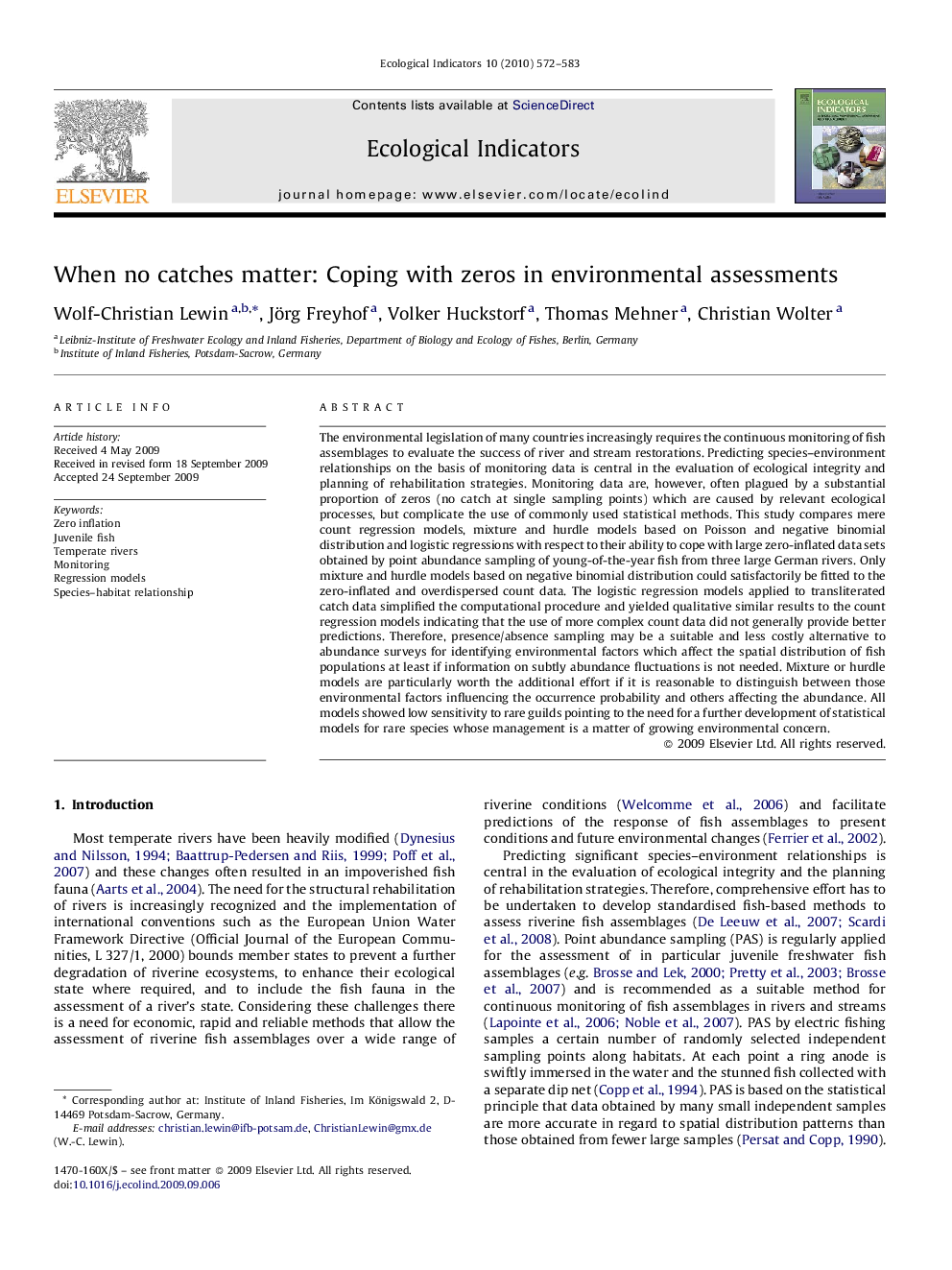| کد مقاله | کد نشریه | سال انتشار | مقاله انگلیسی | نسخه تمام متن |
|---|---|---|---|---|
| 4374198 | 1303165 | 2010 | 12 صفحه PDF | دانلود رایگان |

The environmental legislation of many countries increasingly requires the continuous monitoring of fish assemblages to evaluate the success of river and stream restorations. Predicting species–environment relationships on the basis of monitoring data is central in the evaluation of ecological integrity and planning of rehabilitation strategies. Monitoring data are, however, often plagued by a substantial proportion of zeros (no catch at single sampling points) which are caused by relevant ecological processes, but complicate the use of commonly used statistical methods. This study compares mere count regression models, mixture and hurdle models based on Poisson and negative binomial distribution and logistic regressions with respect to their ability to cope with large zero-inflated data sets obtained by point abundance sampling of young-of-the-year fish from three large German rivers. Only mixture and hurdle models based on negative binomial distribution could satisfactorily be fitted to the zero-inflated and overdispersed count data. The logistic regression models applied to transliterated catch data simplified the computational procedure and yielded qualitative similar results to the count regression models indicating that the use of more complex count data did not generally provide better predictions. Therefore, presence/absence sampling may be a suitable and less costly alternative to abundance surveys for identifying environmental factors which affect the spatial distribution of fish populations at least if information on subtly abundance fluctuations is not needed. Mixture or hurdle models are particularly worth the additional effort if it is reasonable to distinguish between those environmental factors influencing the occurrence probability and others affecting the abundance. All models showed low sensitivity to rare guilds pointing to the need for a further development of statistical models for rare species whose management is a matter of growing environmental concern.
Journal: Ecological Indicators - Volume 10, Issue 3, May 2010, Pages 572–583